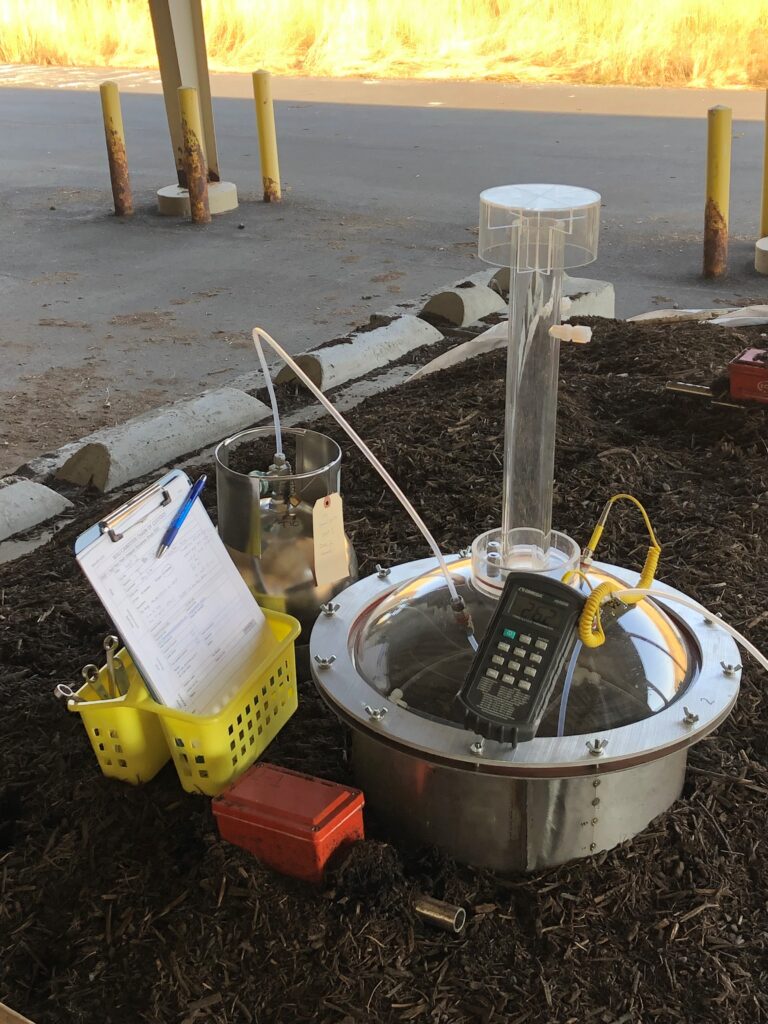Washington State University researchers have received a $2.5 million Department of Ecology grant to study gas emissions from composting.
Led by Tom Jobson, a professor in the Department of Civil and Environmental Engineering, the project will measure emissions from green waste/food waste mixtures composted at a pilot plant built in Pullman at the WSU Compost Yard. The pilot plant is a continuously aerated static pile system. Another pilot plant will be built at the Puyallup Research and Extension Center, overseen by project collaborator Doug Collins. Emissions of volatile organic compounds, methane, and carbon dioxide will be measured and the data used by the state for air emissions permitting of compost facilities.
Compost facilities are growing in popularity as a way to manage organic waste instead of landfilling that waste. Compared to landfilling, composting has lower emissions of the powerful greenhouse gas methane.

“The state government has the public policy goal to stop sending organic waste to landfills to combat climate change and composting is one option for processing that waste,” Jobson said. “Landfilling is not a sustainable way of managing our organic waste.”
But the public policy goal is colliding with Clean Air Act requirements. The team is looking into how the state can expand the composting industry and where they might be subjected to more stringent permitting and testing.
As part of the two-year project, Jobson will use a specially outfitted van to measure emissions of volatile organic compounds (VOC) in aeration ducts and compost pile surfaces. VOCs are regulated air pollutants.
“Our charge is to figure out the total mass of [VOCs] emitted from the composting process,” he said.
Emissions are thought to vary depending on types of feedstock material and compost conditions like temperature and air flow rates. Two pilot plants will be used to examine regional feedstock differences. Compost feedstock materials collected from commercial facilities west of the Cascades will be composted at the Puyallup pilot plant, and materials collected from facilities east of the Cascades will be composted in Pullman.







